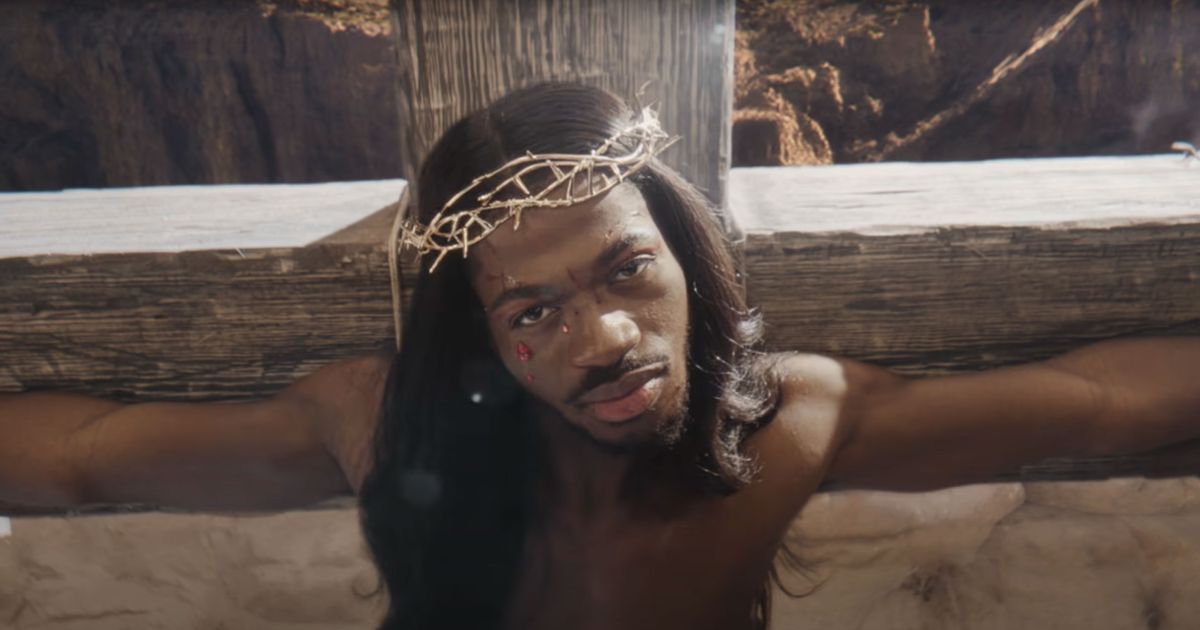Latest News
 BRAND NEW: Sexyy Red - Hoochie Coochie #hot21radio
BRAND NEW: Sexyy Red - Hoochie Coochie #hot21radio BRAND NEW: Finesse2tymes - Bissonnet #hot21radio
BRAND NEW: Finesse2tymes - Bissonnet #hot21radio BRAND NEW: Rod Wave - Sinners #hot21radio
BRAND NEW: Rod Wave - Sinners #hot21radio Justin Bieber Just Revealed Footwear From His New SKYLRK Brand #JustinBieber
Justin Bieber Just Revealed Footwear From His New SKYLRK Brand #JustinBieber Fact Check: Did Tyla Unfollow KISS OF LIFE After JulieŌĆÖs Racist Birthday Debacle? #Tyla
Fact Check: Did Tyla Unfollow KISS OF LIFE After JulieŌĆÖs Racist Birthday Debacle? #Tyla 2Pac 'Don Killuminati' Song Sparks $5M Lawsuit From Estate Of Black Muslim Leader #2Pac
2Pac 'Don Killuminati' Song Sparks $5M Lawsuit From Estate Of Black Muslim Leader #2Pac Fans Think Justin Bieber Shaded Selena Gomez's Engagement #JustinBieber
Fans Think Justin Bieber Shaded Selena Gomez's Engagement #JustinBieber Ice Spice Seemingly Indicates SheŌĆÖs Dating An NFL Star #IceSpice
Ice Spice Seemingly Indicates SheŌĆÖs Dating An NFL Star #IceSpice Playboi Carti & The Alchemist's Leaked Song Has The Internet Goin' Nuts #PlayboiCarti
Playboi Carti & The Alchemist's Leaked Song Has The Internet Goin' Nuts #PlayboiCarti Doja Cat Calls Out ŌĆ£IgnoranceŌĆØ & ŌĆ£LiesŌĆØ Amid Renewed Controversy #DojaCat
Doja Cat Calls Out ŌĆ£IgnoranceŌĆØ & ŌĆ£LiesŌĆØ Amid Renewed Controversy #DojaCat
Lil Nas XŌĆÖs Return Is More Than a Second Coming #LilNasX
vulture January 12, 2024
Lil Nas X 31

His breezy comeback single arrived on the prickliest possible battlefield.
It must be rollout season, because Lil Nas X is stunting again. The 24-year-old rapper, singer, and outrage magnet just released ŌĆ£J. Christ,ŌĆØ the single heŌĆÖs been teasing over the last week and a half of faith-based proclamations (provocations?), which picks up where the Christian themes in the video for ŌĆ£(Montero) Call Me by Your NameŌĆØ left off. The new song is breezy and carefree, a viable successor to triumphant rhyme performances like ŌĆ£Industry Baby.ŌĆØ Lil Nas has chosen the prickliest possible battlefield to herald the new creative era heŌĆÖs signaling: the iconography of the crucifixion and resurrection of Jesus Christ. The video, which he directed himself, foists the artist into biblical scenes. HeŌĆÖs crossing Satan up in streetball, patrolling pearly gates and gilded stairways in luxurious halos, and, thus, fielding furious charges of blasphemy. Over the last month, Lil Nas X has wolfed down sacramental wafers and guzzled drinks from a communion tray while wearing a purple-and-white toga on Instagram and referenced the Jesus Mecha Christ meme in a promotional short, and his detractors in rap and politics pounced . The right-wing-media feeding frenzy around Montero spoke to the eagerness of the most committed pundits to wedge into every corner of public life in the year where we heard Ben Shapiro recite lyrics from Cardi B and Megan Thee StallionŌĆÖs ŌĆ£WAP.ŌĆØ But this new round of public denouncements falls more in line with recent pop-star transgressions like Doja CatŌĆÖs ŌĆ£Demons,ŌĆØ where the work is confronting the publicŌĆÖs reservations about the artist and making the angriest parties feel like unwitting agents in the promotional campaign. ŌĆ£Call Me by Your NameŌĆØ snapped the devilŌĆÖs neck to symbolize victory over self-loathing and shame. ŌĆ£J. ChristŌĆØ shimmies in holy robes with celebrity look-alikes, offering a buffet of options for outrage aggregation but maybe also a sincere vision of what Montero wants from the afterlife. ItŌĆÖs bait, right? During the pickup game, you realize the Y-shaped monogram Nas is using for a logo now is a silhouette of a butt; the merch line stamps it on a wafer on a tongue. People who think homosexuality is dominating American politics and social contracts (in spite of mountains of anti-LGBTQ bills that floated through Congress last year alone and to the contrary of mounting violence and bans on care) get a real treat in ŌĆ£J. Christ,ŌĆØ a dedicated campaign of tampering with taboos that has culminated in a video whose Man Upstairs slays in a milk-white squoval nail and 30 inches of hair. Lil Nas X is topping off the gas tanks of every hater, and they love it. But the notion under the noise stands. Queer people are all too often boxed out of religious spaces, too often mistreated by them and in them. The sight of church folksŌĆÖ message of acceptance flying out the window whenever the LGBTQ community gets a foot in any door is what makes it a delicious target for trolling; you would endure less hate if you led with love. The backlash against Lil Nas X never seems to grasp this. ItŌĆÖs always aiming to exclude, preaching to the choir. Hitting these pressure points catches people out in their hypocrisies, highlighting grifters and hip-hop heads who let racists, rapists, and abusers skate but find their righteous voices when some gay shit happens. It also stresses who does and doesnŌĆÖt get to conduct confusing conversations about Christianity. The year Ye rapped about bleached assholes over a gospel track, conservative media was courting him. The ŌĆ£I Am a GodŌĆØ man was given ample room to explore CCM music, but a gay rapper catches hell the minute he mentions heaven. Last fall, Lil Nas shared a snippet of a gorgeous country song about praying for guidance, which got him called an ŌĆ£abominationŌĆØ and a ŌĆ£gay demon.ŌĆØ The track mightŌĆÖve been a setup for a joke for which ŌĆ£J. ChristŌĆØ is the punch line, but what if it wasnŌĆÖt? Squint, and spectacle vaguely resembles the flak over MadonnaŌĆÖs ŌĆ£Like a PrayerŌĆØ video: Yes, this Black Jesus routine is devised to ruffle feathers, but we could be discussing the chaotic ŌĆ£he that is the least among you shall be greatŌĆØ story itŌĆÖs telling, the optics of that walk in that room , of cosplaying afterlife power and glory in the midst of a spirit-breaking present. Read more







